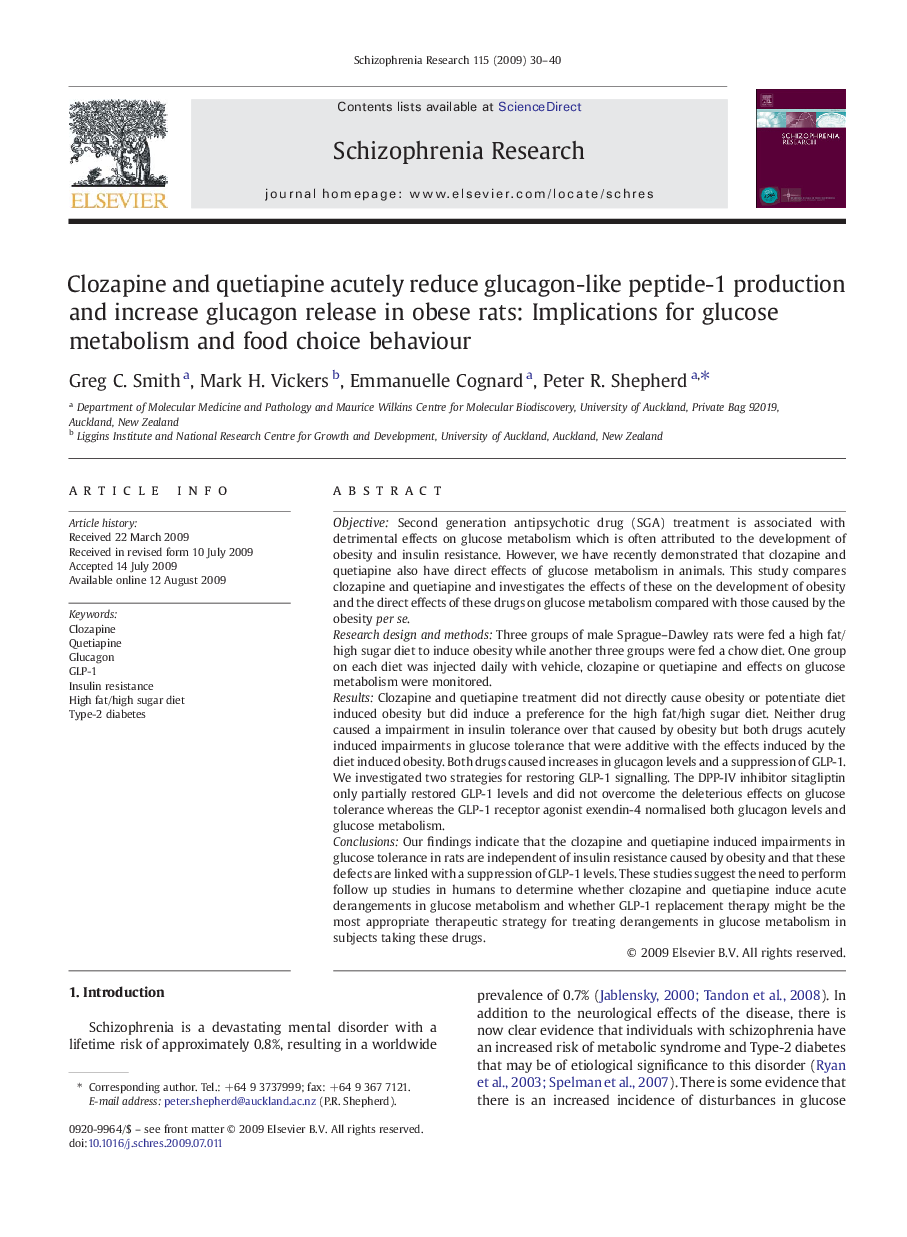| کد مقاله | کد نشریه | سال انتشار | مقاله انگلیسی | نسخه تمام متن |
|---|---|---|---|---|
| 338623 | 547969 | 2009 | 11 صفحه PDF | دانلود رایگان |

ObjectiveSecond generation antipsychotic drug (SGA) treatment is associated with detrimental effects on glucose metabolism which is often attributed to the development of obesity and insulin resistance. However, we have recently demonstrated that clozapine and quetiapine also have direct effects of glucose metabolism in animals. This study compares clozapine and quetiapine and investigates the effects of these on the development of obesity and the direct effects of these drugs on glucose metabolism compared with those caused by the obesity per se.Research design and methodsThree groups of male Sprague–Dawley rats were fed a high fat/high sugar diet to induce obesity while another three groups were fed a chow diet. One group on each diet was injected daily with vehicle, clozapine or quetiapine and effects on glucose metabolism were monitored.ResultsClozapine and quetiapine treatment did not directly cause obesity or potentiate diet induced obesity but did induce a preference for the high fat/high sugar diet. Neither drug caused a impairment in insulin tolerance over that caused by obesity but both drugs acutely induced impairments in glucose tolerance that were additive with the effects induced by the diet induced obesity. Both drugs caused increases in glucagon levels and a suppression of GLP-1. We investigated two strategies for restoring GLP-1 signalling. The DPP-IV inhibitor sitagliptin only partially restored GLP-1 levels and did not overcome the deleterious effects on glucose tolerance whereas the GLP-1 receptor agonist exendin-4 normalised both glucagon levels and glucose metabolism.ConclusionsOur findings indicate that the clozapine and quetiapine induced impairments in glucose tolerance in rats are independent of insulin resistance caused by obesity and that these defects are linked with a suppression of GLP-1 levels. These studies suggest the need to perform follow up studies in humans to determine whether clozapine and quetiapine induce acute derangements in glucose metabolism and whether GLP-1 replacement therapy might be the most appropriate therapeutic strategy for treating derangements in glucose metabolism in subjects taking these drugs.
Journal: Schizophrenia Research - Volume 115, Issue 1, November 2009, Pages 30–40